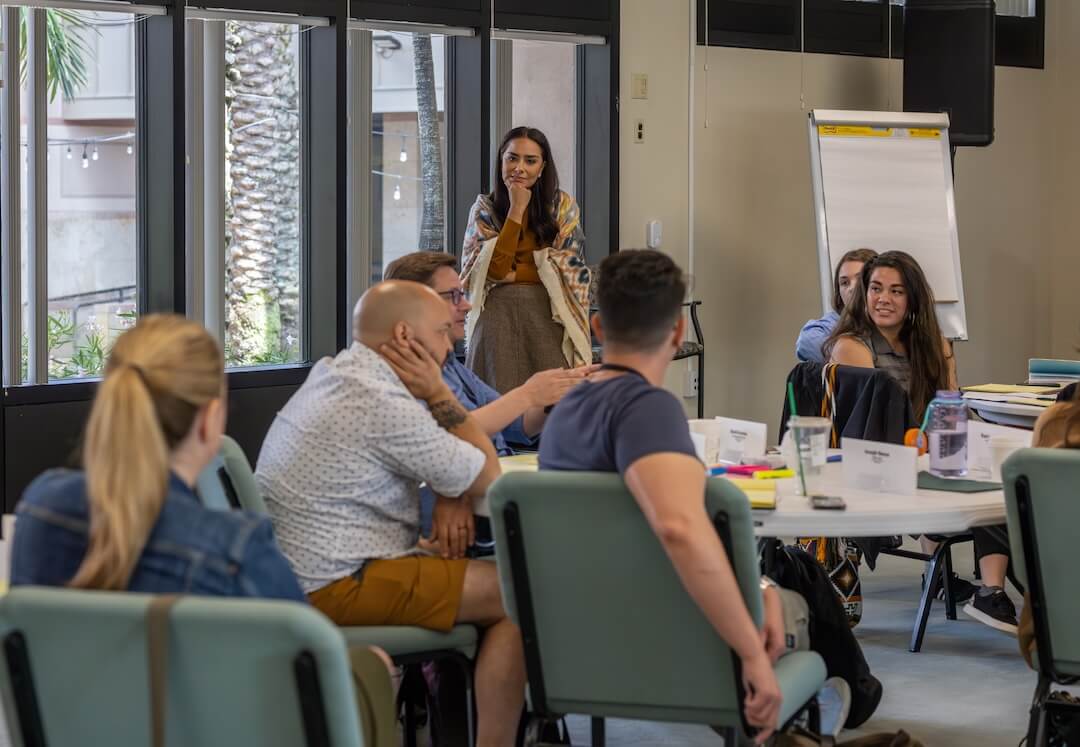In 2008, the St. Louis Post-Dispatch went through its first round of layoffs.
“The layoffs had been preceded by several rounds of buyouts in 2006/2007,” said David Carson, a staff photographer. “The corporate folks blamed the need for layoffs on declining revenue.”
Carson’s in the same newsroom as he was in 2008, although the photo staff there is one-third of the size it once was.
Here’s what he thinks worked and what didn’t in the past decade.
In the last 10 years, what are the biggest changes you’ve had to make in your job?
The constant rolling deadlines of the website have changed the workflow of the day. The editors are always clamoring for fresh stories and photos to put on the site.
In the last 10 years, what are the biggest changes you’ve seen journalism go through?
The gutting of newsroom staffs across the country by corporate owners has been brutal. Stories that in the past would’ve been covered by a beat reporter are now slipping through the cracks and going unnoticed and unreported.
What are you doing now that you didn’t expect to be doing 10 years ago?
Using a cellphone as a multifunction tool to cover stories. I mean, yeah, I always used my cellphone to talk to editors and co-workers, but now it’s used for everything: sending tweets, downloading emails, sending texts, shooting photos and video, or live streaming video directly from news events is just part of everyday life now.
What aren’t you doing now that you did expect to be doing 10 years ago?
I can’t think of anything we’ve stopped doing. The reality is we just keep getting more work piled on.
Looking back, what do you wish you’d done or changed faster?
I wish I’d started using social media earlier.
What are you glad you didn’t give up in your career?
I believe in the power of still images. I’m glad that while many were racing to “pivot to video” we fought for and advocated for the value of strong still photojournalism to tell stories.
How have newsroom layoffs impacted your work, your newsroom and the city where you live?
The photo staff is about 1/3 the size it was when I arrived here in 2000. We currently have 7 photographers and 2 editors but I know other photo staffs have suffered even more draconian cuts or been eliminated. I still think we provide excellent visual coverage of our community but I also know that we’re not covering everything we used to. Reporters are shooting things with their iPhones that a staff photographer used to shoot and usually that means the quality of our visual report suffers.
What advice would 2018 you give 2008 you?
Embrace social media, stop fighting it. I was skeptical of social media when we first started using it. Everyone in the newsroom was ordered to create Twitter accounts to tweet about election night in 2008, blah. I slowly began to see Twitter’s value as a journalist in 2011-12. By 2013 and I was enjoying Twitter and using it as a tool to cover the community and promote the great journalism of my co-workers. In 2014 I used Twitter extensively to cover the protests in Ferguson. I believe that my use of social media contributed in part to the photo staff of the St. Louis Post-Dispatch winning the 2015 Pulitzer Prize for Breaking News Photography for our coverage of Ferguson.
Where do you think you’ll be 10 years from now?
Great question, I have no idea. I hope I’m still employed as a photojournalist but given the state of the newspaper industry that might be wishful thinking. Maybe I’ll be an editor; maybe I’ll be doing something totally different. The future is murky.
What’s the best thing that’s happened in journalism in the past decade?
Ummmmm, yeah. I’ll be interested to hear what other people have to say about this. I’m glad to see employees at many papers are unionizing to try and slow the roll of greedy corporate owners.
What’s the worst thing that’s happened in journalism in the past decade?
Corporate ownership of newspapers has proven to be disastrous for journalism. Newsroom staffs have been slashed as family-owned newspapers with their sense of responsibility and accountability to the community are sold off to hedge funds and corporations. Time and again the actions of corporate owners have shown they are interested only in profits at the expense of journalism that serves the community and country.
What are you the most excited about now in your career?
I’m just happy to still be employed doing what I love. Many talented journalists have been forced out of the profession by layoffs. I feel lucky to still be working in a newsroom.
What are you the most afraid of now in your career?
At some point somebody is going have to figure out a way to fix the broken business model of newspapers. We’re currently stuck in a negative feedback loop of declining revenue that leads to journalists being laid off, that makes the paper less valuable to the community that leads to revenue declines … I hope we find a new model that can support the important work of journalism before more damage is done.







